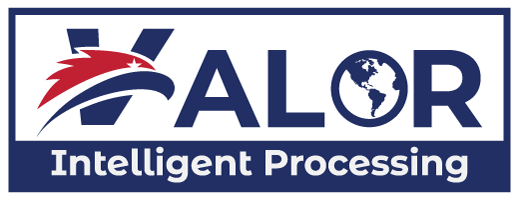When people talk about collecting unpaid debts, the focus usually falls on the amount owed and how quickly it can be recovered. But the real difference lies in how the process is handled. The way an account is managed can determine whether a debtor responds positively or completely shuts down communication. Some methods connect better with certain customers than others, and that’s where the strategy behind each step starts to matter.
Not all debt collection approaches are created equal. Some are rigid and transactional, while others offer a more flexible and thoughtful way of reconnecting with consumers. The most effective methods are the ones that balance firmness with respect. Knowing when to make a call, when to send a reminder, or how to structure a payment plan can go a long way in keeping the conversation going without causing more stress. Especially in a city like Dallas, where population and business needs are growing, making those methods count matters more than ever.
The Role of Communication in Debt Collection
Every successful plan starts with a conversation, and that’s especially true in debt collection. Debtors aren’t just numbers on a screen. They’re people facing all kinds of financial challenges. The way debt collection agents handle these conversations can shape everything that follows. From the tone of voice on a phone call to the wording in an email, communication has the power to break down walls or build new ones.
Here’s what strong communication tends to include:
– Simple, straightforward language that avoids industry jargon
– A respectful tone that leaves room for the person to explain their side
– Listening more than talking at key points in the conversation
– Offering clear steps toward resolution without pressure or confusion
Debt collection agents in Dallas often work with people in all types of financial situations—from someone who recently lost a job to a person trying to juggle seasonal bills. A one-size-fits-all message doesn’t always land well. Anything that sounds like a generic script usually gets ignored. Customized messages that address timing, payment choices, or even account details show that someone took the time to listen.
Regular follow-ups also help keep the lines of communication open. That doesn’t mean nonstop phone calls. It could be a reminder sent at a time the customer prefers or a quick note after an agreed-upon check-in date. What matters most is consistency paired with understanding. The goal is never to overwhelm—it’s to stay present without adding pressure.
Technological Tools for Successful Debt Collection
Debt collection has come a long way from paper statements and manual calling logs. These days, technology gives agents more tools to do their job well. When used thoughtfully, these tools strengthen the connection between businesses and the people they’re trying to reach. From automated reminders to secure online portals, the process runs more smoothly when tech keeps everything moving in the background but still feels personal to the user.
Dallas-based teams often use digital platforms that allow customers to do things on their own time. Whether it’s checking a balance, picking a payment plan, or choosing when they get reminders, giving people control helps reduce tension. It also gives them a sense of ownership, which can make missed payments feel manageable again.
Automated tools help agents too. Instead of spending hours dialing numbers or sorting through spreadsheets, they use programs that organize accounts by risk level or recovery stage. That way, they know who to reach out to first and how to tailor that first step. These systems don’t replace the personal touch—they back it up with information that’s current and useful.
Just like with communication, the best tech doesn’t try to do everything. It focuses on doing a few things well, like sending gentle alerts, managing secure transactions, or tracking conversations across email and calls. When tech and human insight work together, it leads to better outcomes for both the collector and the customer.
Staying Compliant and Earning Trust
When it comes to collecting debts in Dallas, how laws are followed matters just as much as the results. Debt collection is tightly regulated, especially in Texas, where consumer protection rules are clearly defined. Businesses and agents who stick to those regulations not only stay out of trouble—they earn more trust from the people they’re trying to work with.
Ethical debt collection goes beyond just avoiding violations. It’s about showing respect during every interaction. People are far more likely to respond when they feel treated fairly. That starts with a clear explanation of what’s owed, why it’s being collected, and what their options are. It also means giving space to ask questions and explain their side of the story without judgment. Even small things, like avoiding common legal threats or using firm but fair language, can make a big difference.
In Dallas, following these expectations helps prevent complaints and legal headaches. Whether it’s staying compliant with the Texas Debt Collection Act or federal laws like the FDCPA, working inside those lines isn’t optional. It’s necessary. When agents do things the right way, collection efforts have a much better shot at ending well for everyone involved.
Picking a Collection Partner That Fits
Not every agency works the same way, which is why choosing the right one becomes so important. It’s not just about who can recover the most money. It’s about who understands your goals, handles your customers well, and helps things run smoothly from start to finish. Whether you’re running a small office or managing a busy operation in Dallas, a good fit goes a long way.
Here are a few things to look for when you’re weighing options:
1. Experience working with similar types of accounts
2. A flexible and respectful approach to consumer communication
3. Tools that give you clear visibility into the collections process
4. Tech capabilities that match your systems and needs
5. A record of staying compliant with local and federal rules
Collections impact your reputation. So the style and tone used by your partner should reflect well on your business. If they handle things with pressure and no empathy, your customers will remember. On the other hand, a more balanced and professional approach can actually improve customer relationships long-term, especially when people feel heard and respected.
Adjusting Collection Strategies Based on Who You’re Talking To
Debt affects people differently. That’s why smart collection strategies change depending on who you’re speaking to. A young adult who missed a student loan payment isn’t the same as a retired homeowner behind on medical bills. Using the same script on both will probably lead to one or both ignoring the message entirely.
Customized approaches help agents build better connections. For example, someone working an hourly job might prefer reminder texts in the evening rather than phone calls during business hours. Another person may want to speak directly with someone to go over their options before agreeing to anything. Being able to shift strategies based on age group, financial habits, or communication preferences keeps the process flexible and less stressful.
Some people respond better to small-step solutions, like adjusting due dates or starting with lower amounts. Others may be overwhelmed, and the first goal becomes just getting a reply. Instead of rushing into demands, successful collectors start slow. The key is figuring out what the person needs to re-engage—and then matching that need with the right tools or outreach style.
Focusing on Long-Term Collection Success
Getting a payment should not be treated as the end of the road. Long-term success in debt collection comes from learning, adjusting, and improving the process year after year. Seasonal changes, economic shifts, and consumer habits evolve. The strategies that worked well last year might not cut it today.
Collections run better when processes stay flexible. That might mean switching up communication channels, updating automation tools, or offering more payment plan options. It also helps to regularly review outcomes and pay attention to patterns. If one method keeps missing the mark, don’t repeat it. Instead, try something new based on what customers are actually responding to.
Success takes a mix of consistency and adaptability. Good debt collection isn’t just about getting paid—it’s about how people are treated throughout the process. When companies focus on keeping things clear, respectful, and fair, their collection methods naturally become more effective over time. This keeps businesses aligned with both their financial goals and customer values.
For businesses in Dallas aiming to improve recovery outcomes, working with experienced debt collection agents can make a lasting impact. Valor Intelligent Processing offers tailored solutions that align with your business goals, ensuring a respectful and effective collection process from start to finish.


